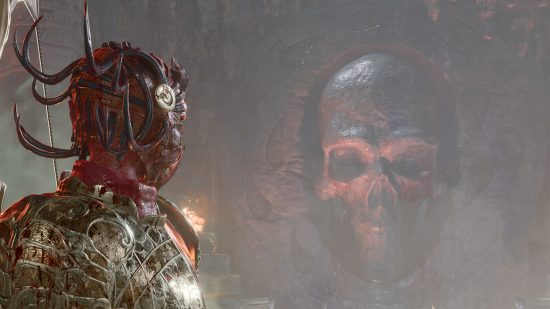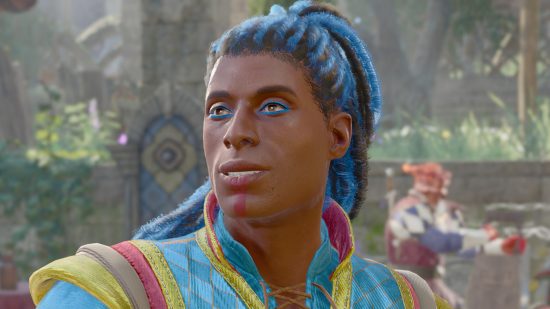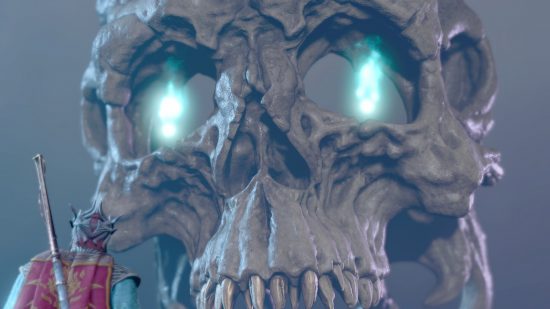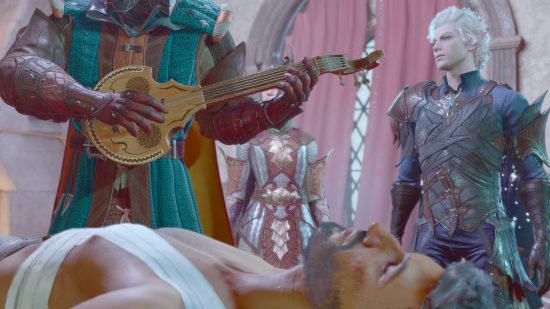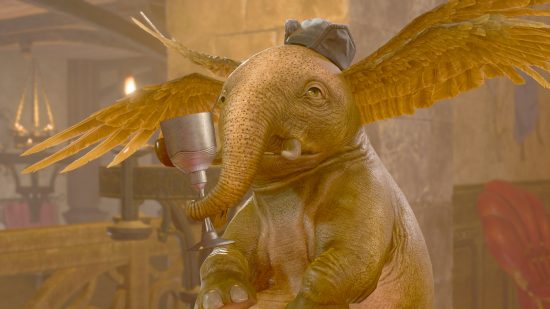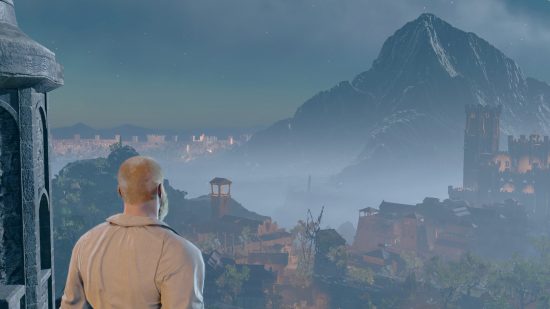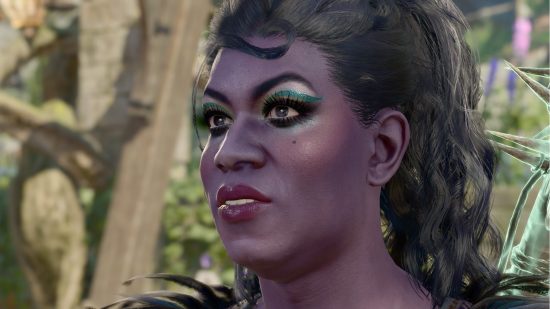You may not have heard of it, but there’s this new DnD game called Baldur’s Gate 3 that’s really rather good. So good, in fact, that Wargamer’s little team of four have collectively played 300 hours of it so far, and aren’t likely to put it down for at least another 300. If you’ve read our Baldur’s Gate 3 review, you’ll know what makes Larian Studios’ CRPG unputdownable – but I have a feeling BG3’s impact will extend past the end credits; I think it’s going to bring Dungeons and Dragons, kicking and screaming, back onto my tabletop.
See, despite greedily reading up on every new DnD campaign module, rifling through the latest DnD books released, and keeping up with the news on One D&D (the next version of the game, coming in 2024) I haven’t wanted to get into a full-blown Dungeons and Dragons campaign for years. It may be the world’s most popular tabletop RPG, and it has a lot going for it, but – like a hell of a lot of dice-rollers – I have long since drifted away from DnD.
To be clear, I’m by no means our team’s roleplaying aficionado (step forward please, Mollie Russell), but I’ve played a fair few TTRPGs in my time. My weekly group has been running for five years straight, meandering from DnD, through Warhammer 40k Wrath and Glory, Age of Sigmar Soulbound, Pathfinder 2E, and currently trying our hand at some skulduggery with Blades in the Dark.
Before that, I dabbled in campaigns of the official Firefly and Star Wars TTRPGs, among others. I’ve been, if not around the block, then at least around the corner of the block to see what’s on the other side.
And there’s a lot on that other side of the block to tempt players away from DnD for good. Other systems offer – among many other things – far more robust, satisfying rules for non-combat encounters; more compelling incentives to invest in and use social skills; more interesting mechanics for teamwork and creative problem-solving; and a more stimulating action economy.
It’s not all about fluffy social stuff, either; crunch-loving min-maxers can find much tastier tactical feasts than DnD – why else do you think that person in your LGS has spent the last 15 years wanging on about how much better Pathfinder is?
Whether you want the liberating open-ended roleplay of OSR games, or more diehard simulation of a specific type of adventure, dozens of games exist to provide a more perfect solution than fifth edition DnD.
Meanwhile, other settings (that is, settings beyond DnD’s near ubiquitous Forgotten Realms) provide for oodles of narrative backdrops that’re farther removed from familiar Tolkienesque euro-fantasy tropes and the lingering essentialism of the DnD races.
Some (shock, horror) are even cut from non-Western cultural cloth, allowing for characters and situations that reflect the histories and imaginations of colonised, rather than colonising peoples.
My point is, there’s no shortage of reasons for the tabletop RPG connoisseur to abandon the middle-of-the-road Coca-Cola that is Dungeons and Dragons, in favor of a different delicious hipster drink every day of the year.
But the thing about Coca-Cola (not a sponsored article) is that, sooner or later, I always end up fancying one – and so it is with DnD 5e. It’s always an option; you’ll never struggle to find people to play; the DnD rules – while limited in lots of ways – are easily learnt and re-learnt; there’s a whole library of delicious sourcebooks already on my shelf to tempt me back in; and, crucially, it will always have been my first TTRPG.
For me (and, I suspect, many gamers) DnD simultaneously promises comforting familiarity and accessibility, and a functionally endless reservoir of tempting content that I’m perpetually itching to try. Besides which, its world is so tied into my gaming memories that nostalgia is never far away from drawing me back in.
And so we come to Baldur’s Gate 3. DnD publisher Wizards of the Coast already expects to make tons of cash just from licensing the game, but there’s no doubt they’re also hoping to lure a big party of PC gamers into the DnD fold. Reviewers have waxed lyrical about the game’s impressive multi-stranded story and ultra-immersive fantasy world being a perfect advert for the DnD experience.
That may be true, but, if so, a lot of BG3 players are in for a rude awakening when they realise murder-hoboing your way through a DnD campaign and creating a gruesome murder-house doesn’t tend to fly on the tabletop.
Claims that BG3’s core gameplay rivals the flexibility of tabletop DnD are also overblown, in my opinion; a computer game can only simulate finite solutions to a problem, and it can only tell a finite number of stories.
There’s a reason the inevitable Baldur’s Gate 3 DLC won’t be able to extend the BG3 max level to 20: a videogame can’t facilitate the level of imaginative creation and destruction available at that stage of a DnD game.
For me, though, it’s simpler than all of that – Baldur’s Gate 3 is simply an inspiring indicator of what a Dungeons and Dragons adventure can be, when everything (or at least, nearly everything) is done just right.
Its careful, unhurried development has built a scrumptiously detailed game world that creates the feeling of free choice and immersive simulation by focusing on depth, not breadth.
Its rendition of the eponymous (huge) DnD city manages to conjure the feel of a miles-wide sprawl using only a scant village’s worth of explorable area, simply by pouring gallons of tiny, colorful details into every crevice.
Its bewildering array of voiced NPCs and optional social encounters, backed up by meticulous, top-quality writing and acting, summons memories of the very best DnD sessions, run by our favorite Dungeon Masters.
Its diversity of characters, in terms of personality, motivations, backgrounds, and real-world ethnic, gender, and sexual representation shows us that DnD, as a storytelling vehicle, doesn’t have to be shackled to its outdated 1970s origins.
Finishing Baldur’s Gate 3 not only made me want to immediately play again, it also made me want to play Dungeons and Dragons again for the first time in half a decade – by showing me DnD can be, in every way, more than I remember it being.
Let’s hope Wizards of the Coast is similarly inspired by Larian’s shining example in the critical years to come. In the meantime, there’s always DnD homebrew – first one to recreate BG3’s entire branching storyline as a tabletop module wins a prize.
For the tools to whip up your own campaign, check out our guides to the best DnD maps and DnD character creator tools – or if BG3 just has you in the mood for more digital adventures, there are a fair few other cracking DnD games out there to try.
Source: Wargamer




